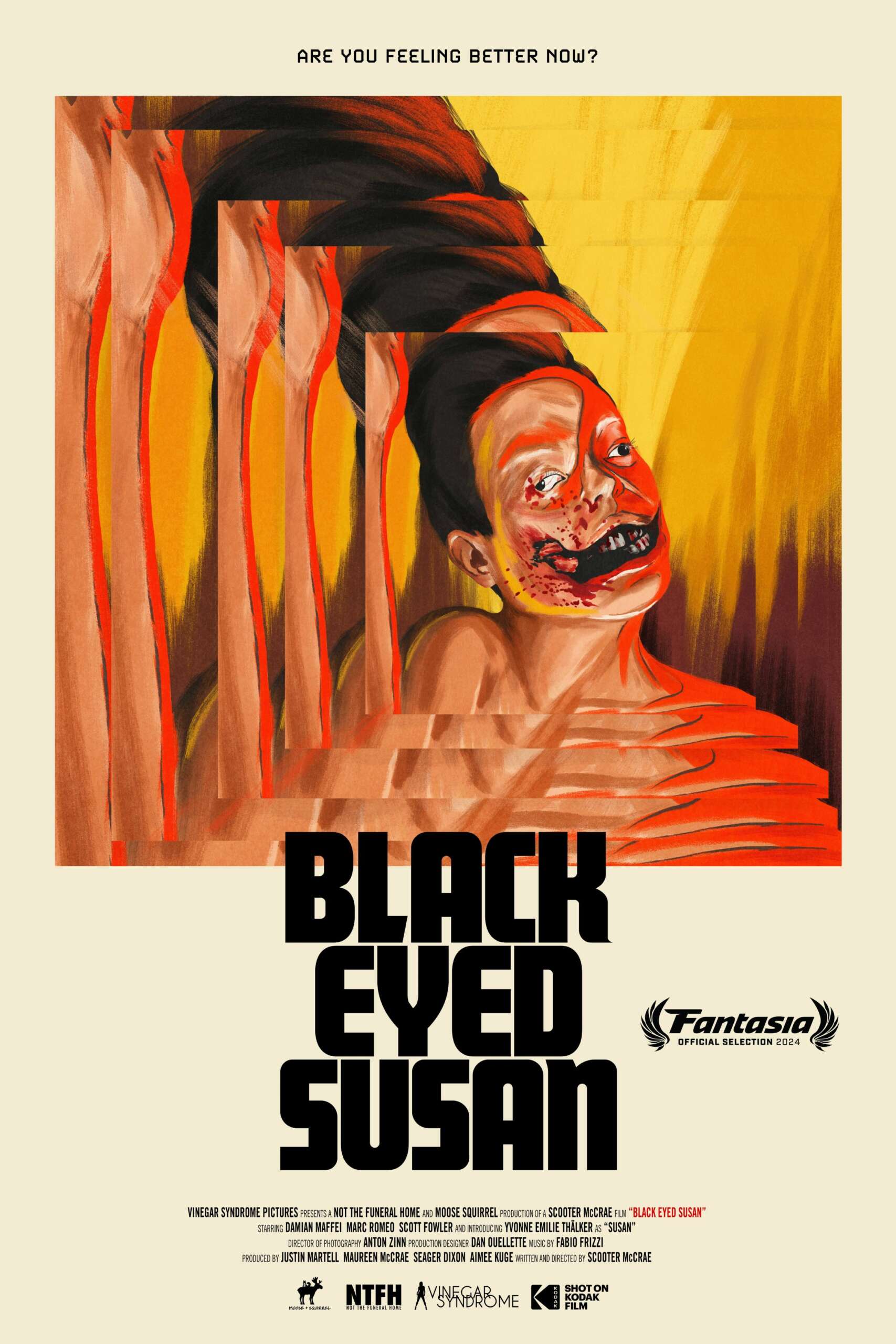

Artificial intelligence has long been at the forefront of science fiction, be it the genocidal supercomputer Skynet from the Terminator franchise or the replicants from Blade Runner. Similarly, the concept of the uncanny valley has long been used as a source of horror in the genre. Simply put, the concept of something that is almost identical to a human but isn’t quite there is revolting to most people, as is the idea of an intelligence like ours but entirely so. Scooter McCrae’s Black-Eyed Susan blends these concepts into an unsettling, tantalizing, and unexpectedly sweet exercise that asks what it means to be an artificial person.

Black Eyed Susan is the story of Derek, a down on his luck recently unhoused divorcee who takes a job helping develop a cutting-edge artificial intelligence in the form of Susan. Susan is a hyper realistic sex doll designed for physical abuse and punishment with the intent of giving those with violent tendencies an outlet, and it’s Derek’s job to help her develop more realistic tendencies. This however leads to some very uncomfortable truths, both in how he perceives Susan and in her ultimate purpose.

While Black Eyed Susan is quite explicit and graphic with its depiction of sex and BDSM, none of it comes off as gratuitous or “shocking for the sake of being shocking”. That being said, it may be upsetting to some viewers. So, heads up.

The central theme of this film is the concept of personhood, and at which point something “artificial” should be given the same respect we give other human beings. McCrae’s exploration of this idea is fascinating, as it begs the rather simple question of if something is qualitatively identical to a human being, and is otherwise indiscernible from one, should it not be treated with the same dignity and respect? Derek’s inability to fully engage with Susan in a violent manner and likewise his increasingly strong emotional attachment to her reveals the natural human tendency to want to treat such beings the same way we treat humans. Not to go off on a tangent of veganism, but this film could also be interpreted as a treatise on animal rights and how we engage with some of the more intelligent non-human species on this planet. The logical extension of why it’s right or wrong to treat Susan in any particular way could be applied to the great apes, pigs, cetaceans, cephalopods, and certain avian species. After all, something inside of us responds to something we see in her, and that “something” is often seen in other species as well.
Damian Maffei and Yvonne Emilie Thalker as Derek and Susan form the emotional core of this film. Both bring an almost naïve vulnerability to their roles: Maffei as Derek is a down and out father who just wants to do right in the world, whereas Susan is…well, Susan. Maffei imbues Derek with an almost cheesy earnestness that goes right up to the line between sincere and corny and it’s brilliant. Derek should come off as a bland “aw shucks” good guy everyman, but instead Maffei creates a very likeable and complex character, one that works perfectly with Thalker’s depiction of an android that is simply progressing through the world and evolving with each interaction. Instead of seeing Susan merely as a sex object, something to be used and forgotten about, Derek marvels not only at Susan’s sexuality but also at her blossoming humanity. The touch of fear, of awe in the purest sense of the word, that Maffei gives Derek makes the character even more believable. Thalker as Susan is almost too good. Her ability to bring to life Susan’s tendency to mirror the personality of those engaging with her is flawless and unsettling, not because of how human those emotions appear but because it’s just the right amount of artificial that it lands in that beloved uncanny valley. There is a touch of sweetness to Susan’s personality; there’s a scene where she asks not to be switched off at night so she can watch Derek sleep that is lovely in how intimate it is. But most of the power in Thalker’s performance is staying in that pocket of revulsion that exists between unconvincing and utterly believable.

My only real problem with this movie is the bit of mixed messaging when it comes to Susan’s purpose. Her creator explains that she’s supposed to be something certain people can vent their sexual frustration on, something that can be abused and struck without hurting anyone. The problem with this (aside from that fact that arguably Susan is someone) is that there’s no clear delineation made between people who might want to engage in consensual BDSM and people who are simply violent and abusive. The third act reveal of Susan being a steppingstone towards another project meant to placate even darker urges only strengthens this lack of distinction between something safe and healthy (consensual BDSM) and something immoral and deviant (abuse and pedophilia).
Black Eyed Susan is an intense film. An intense experience. It might not be for everyone, but I think it’s a tremendously moving story that achieves mostly what it sets out to. It’s an intimate depiction of sexuality and what it means to be human, and also a rather tragic tale of that humanity and sexuality gone horribly wrong.




